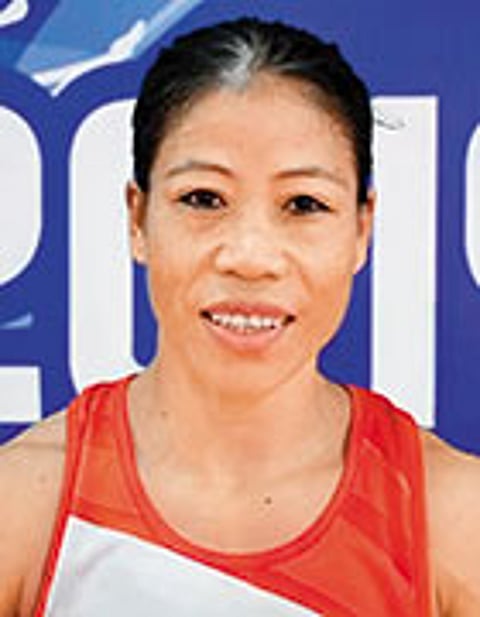Cricket has started in the UK. Since the Black Lives Matter movement many organisations, as well as sports bodies, have demonstrated a positive message. In the Premier League, players’ names were replaced with #BLM.
IPL Can Make A World Of Difference To Black Lives Matter Campaign
English sports has gracefully acknowledged the Black Lives Matter movement. It's time for others to show support, writes former England Test spinner Monty Panesar
When it comes to delivering an important message, cricket keeps on getting it right. Why is it that cricket gets it right and other organisations can’t deliver the same message, like the small speech Michael Holding gave in July during an England vs West Indies Test. The reason being that cricket finds it easier to embrace diversity. Diversity is about recognising that we all succeed in different ways. A cricket team has batsmen, bowlers, a wicket-keeper, but batsmen differ between openers and the middle-order; so do leg- and off-spinners, medium pacers and fast bowlers. With this innate diversity in skill, cricket just deals with racial issues better than other sports.
It was the diversity in the England team that allowed them to win the World Cup. Companies can learn from successful teams like that. It can serve as a blueprint for senior management for building successful teams. The structure of the team lays the foundation of its success. And the best of structures are multicultural. Eoin Morgan’s team drew strength from diverse backgrounds: Jofra Archer is from Barbados, Ben Stokes from New Zealand, Jason Roy from South Africa and Adil Rashid and Moeen Ali have Pakistani backgrounds.
Sports bodies are prominent social institutions where the language of diversity is frequently and positively used. There needs to be a commitment to promoting diversity too. The England Cricket Board doesn’t have one Black board member, CEO or a head coach at the county game. Diverse workplaces enable employees to learn from co-workers with diverse work-styles and attitudes. It is proven that being around different people makes us creative, diligent and hard-working. It’s about introducing group meetings early on to talk about religion and culture, thereby avoiding a one-size-fits-all approach. Where companies try to understand employees and truly care for them it leads to greater productivity.
Since the Black Lives Matter movement, racism can only be addressed collectively. It is only when those in power have something to lose that change occurs. During the election campaign in the US if it appears that Donald Trump’s chances of reelection are slim, he will step up and address racial issues to gain votes. Similarly, firms take notice only when labour union strikes hit revenue. If you want change you have to put your money where your mouth is—as Michael Jordan’s pledge to donate $100 million to promote racial equality shows. We must remember freedom doesn’t come free. The British gave freedom to India, but it came at a huge price. When supporting a team, always think about what laws they have passed around equal rights and race relations.
We have come a long way, with premier league players wearing #BLM, but there still needs to be higher representation of other ethnicities in senior management positions between the ages of 45 and 65. In England, statues of figures linked to slavery being taken down was a victory for the younger generation. There are also calls for changes in school curricula, to educate students about slavery, about how hard it was for Black people 100 years ago. Yet there is glaring disparity: there is lower representation of Black people in music and sports between ages 45 and 65. There should be specific career development programmes to groom a future generation of leaders elsewhere too. Currently, there is a complete absence of female Black presidents/ chairwomen. I think companies in UK should internally review and challenge its equity and diversity laws to ensure equal pay, mentorship and career progression. There is also a lack of Black music industry executives. Some big-name artists want ‘urban music’ to be renamed ‘Black music’, so full credit can go to its makers and forefathers. #BLM want to review Britain’s cultural past and links to slavery. Some object to this focus on the past, saying the nub of the issue is unfairness in health, education and the criminal justice system. There are positive stories too: young Black kids are doing much better and more BAME (Black, Asian and minority ethnic) people are going to the best universities.
At Twickenham and elsewhere, rugby fans have made Swing Low Sweet Chariot—a song with its roots in American slavery—into an anthem, but not out of malice. In fact, it gave an opportunity to educate oneself about what the song was about. The song was less about victory over slave owners and more of sweet death. Wallace Willis, a Native American slave in the deep south composed it because he wanted his death to be sweet. The UK government is listening; they have set up a new commission on racial inequality. But BAME communities don’t trust the justice system. All communities are required to help with these outstanding issues.
My experiences of racism in sport was different to other people, the reason being I was lucky to have mentors and life coaches to guide me through racial issues and keep my focus on cricket. The English warmed to me immediately. I remember Andrew Flintoff saying, “There is a cult following in England now, since you have taken Sachin Tendulkar as your first Test wicket.” When I played my first Test at Lords the crowd erupted and I finally came to realise that I do have a following and that fans just loved everything I did. From when I came on to bowl to my fielding mistakes—fans just connected to me because they could relate to me trying so hard to improve.
I had people call me names and say the ‘P’ word, but we were brought up to ignore anything that kept us from the prize.
I was just focussing on playing for England and not letting any comment keep me from my goal, but I believe you need good support and guidance to keep you focused. If you don’t have that you can easily be led up the wrong path and be distracted.
I think IPL has a big role to play about sending out strong #BLM messages. I believe they should take the knee before each game for the first 10 games as it would send a powerful message that the #BLM campaign is not about Black people, but for equal human rights. Sometime messages from other governing bodies like the IPL may be stronger than the EPL, because there is a lower representation of Black players in the IPL. Everyone will ask: Why are players to take the knee during the IPL, for aren’t collective voices from different communities supposed to bring change? Yet, with India emerging as a superpower, strong messages and leadership is required from a game followed by tens of millions. During the IPL in UAE, Sourav Ganguly must develop strategies and programmes to help the #BLM cause; he has the perfect platform at his disposal.
Let’s imagine big IPL players—Kohli, Dhoni, Harbhajan Singh, David Warner, Steve Smith—all taking the knee. Their fans will do the same. It would be a powerful message, like Michael Holding’s speech—his best delivery to date.
Vox PoP

Mary Kom
Champion boxer
“Years ago, when I was already a national champion, I was in a camp Delhi’s Nehru Stadium. Whenever we’d go out, people would chase us, call us ‘Chinkies’, ‘Chinese’...I would feel sad. Some people are not able to recognise that we are Indian. As a sports achiever, they love me but other Northeastern people face a lot of criticism.”

Andrea Ramazzotti
Football journalist, Corriere Dello Sport (Italy)
“Racism in sport exist among athletes, but above all it exists between the public and athletes. In Italy, fans have made monkey chants...at Balotelli in the stadium of Verona, Koulibay in Inter and Lukaku in Cagliari have faced it. Ali, Pele, Drogba, Bolt are Black athletes who perhaps won’t face racism. The problem is for other Black athletes.”

Martin Mazur
Football writer, professor of journalism (Argentina)
“A talented person cannot be denied, but they can be undermined. Maradona was called a ‘juggler’ when new in Italy. He was playing in the poor south, Naples, not the aristocratic North of Juventus (Platini). He imposed himself, but with struggle that wouldn’t have happened if he was European.
There are almost no Black players in Argentina, but there are no Black people in Argentina! When in the ’90s three Africans came (Tchami at Boca Juniors, Khumalo at Ferro and Mtawalli at Newell’s), they were acclaimed, and seen as funny characters just because of the colour of their skin. They got standing ovations in every game. Under what name? Negro. ‘Olé, olé, negro, negro’. One has to understand the different implications of this word in Argentina and Uruguay, since in every group of friends, there is one nicknamed ’negro’. It could be for a darker skin colour. It’s a way of saying ’sweetheart’, ‘my friend’.... However, calling people who live in shantytowns ‘negro’ is common, and is derogatory. When Luis Suarez called Patrice Evra ’negro’, England exploded in criticism. Yet when a Romanian EPL player admitted he was called ‘gypsy’ in the dressing room, noone cared. What does this tell us? Are we condemning certain behaviour?”
ALSO READ
(Monty Panesar has played 50 Tests for England)